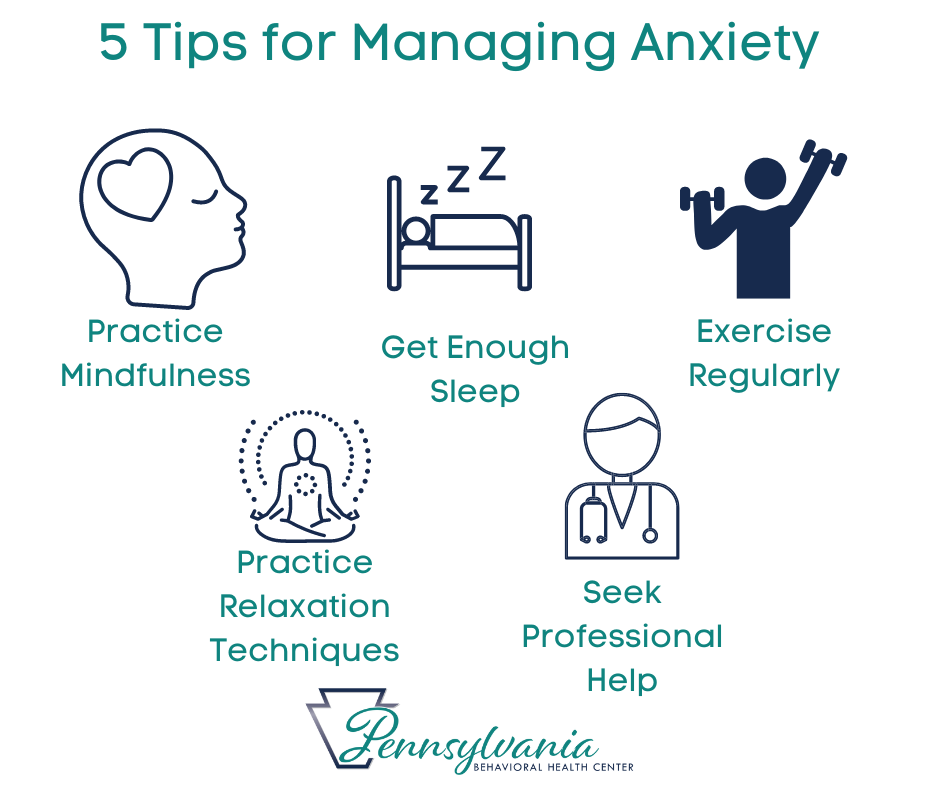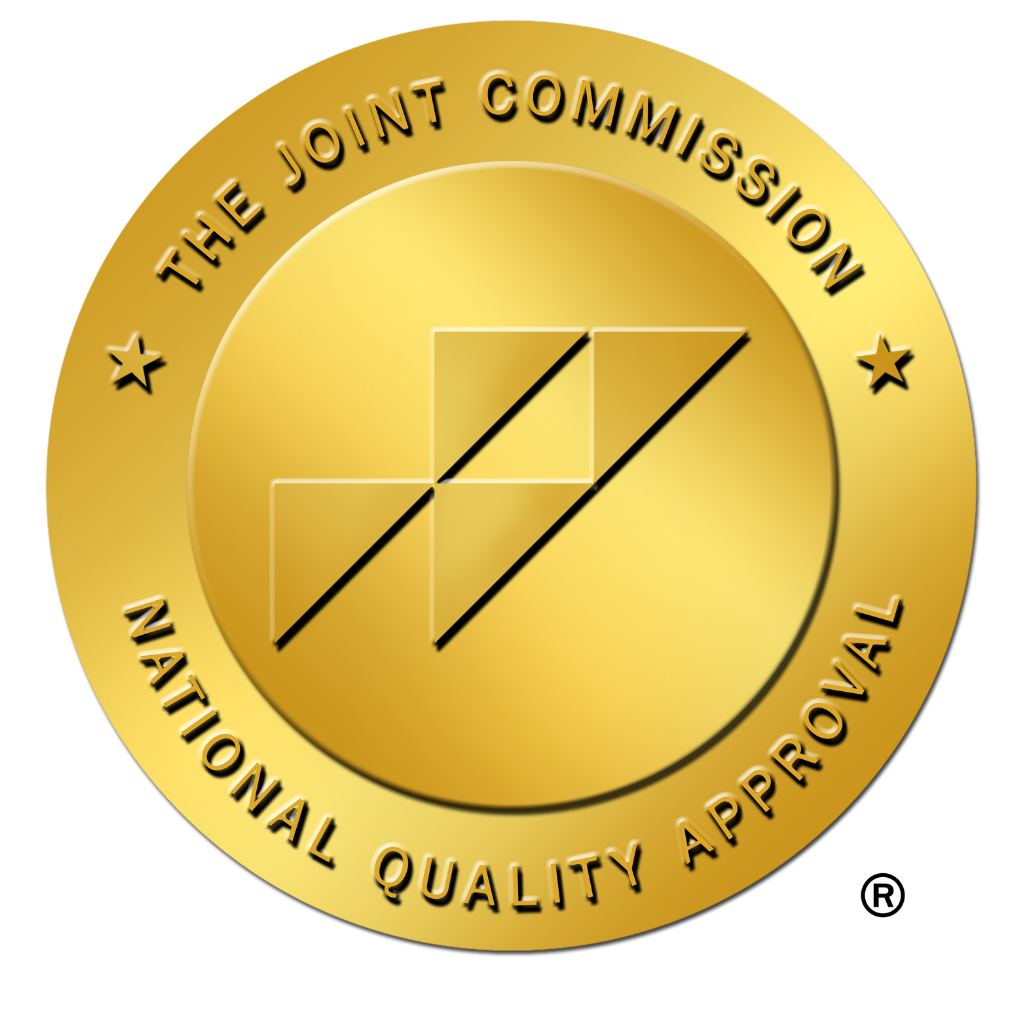5 Tips For Managing Anxiety

Manage Your Anxiety
Anxiety can be a debilitating condition that affects millions of people worldwide. According to the Anxiety and Depression Association of America, anxiety disorders are the most common mental illness in the United States, affecting 40 million adults or 18.1% of the population each year. Fortunately, there are ways to manage anxiety that can help reduce symptoms and improve overall quality of life. Mental health therapy like partial hospitalization and intensive outpatient is very effective in reducing symptomology of anxiety, but it is important to adopt and follow the practices learned while in therapy.
Percentage of the population affected by anxiety disorders each year.
Tip 1: Practice Mindfulness
Mindfulness is a form of meditation that involves focusing on the present moment without judgment. This technique has been shown to be effective in reducing symptoms of anxiety. According to a study published in the Journal of Anxiety Disorders, mindfulness-based interventions were found to be effective in reducing symptoms of anxiety and depression. To practice mindfulness, find a quiet place to sit and focus on your breath. Notice the sensations in your body and bring your attention back to your breath when your mind wanders.
Tip 2: Get Enough Sleep
Lack of sleep can exacerbate symptoms of anxiety. According to the National Sleep Foundation, adults should aim for 7-9 hours of sleep per night. Create a relaxing bedtime routine to help you fall asleep faster and stay asleep longer. Avoid using electronic devices before bed and make sure your bedroom is cool, dark, and quiet.
Tip 3: Exercise Regularly
Exercise has been shown to be effective in reducing symptoms of anxiety. According to a study published in the Journal of Clinical Psychiatry, regular exercise was found to be as effective as medication in treating symptoms of anxiety. Aim for at least 30 minutes of moderate-intensity exercise most days of the week. Choose an activity you enjoy, such as walking, running, or swimming.
Tip 4: Practice Relaxation Techniques
Relaxation techniques such as deep breathing, progressive muscle relaxation, and visualization can help reduce symptoms of anxiety. According to the American Psychological Association, these techniques have been shown to be effective in reducing symptoms of anxiety and stress. To practice deep breathing, sit or lie down in a comfortable position and breathe in through your nose for a count of four, hold your breath for a count of seven, and exhale through your mouth for a count of eight.
Tip 5: Seek Professional Help
If your symptoms of anxiety are interfering with your daily life, it may be time to seek professional help. According to a study published in the Journal of Clinical Psychiatry, cognitive-behavioral therapy (CBT) has been found to be effective in reducing symptoms of anxiety. CBT is a type of therapy that helps people identify and change negative thought patterns that contribute to anxiety.
In conclusion, anxiety is a common condition that can be managed with the right tools and techniques. By practicing mindfulness, getting enough sleep, exercising regularly, practicing relaxation techniques, and seeking professional help, you can reduce symptoms of anxiety and improve your overall quality of life. Remember that it’s important to be patient and persistent in your efforts to manage anxiety, and don’t be afraid to ask for help if you need it.
Sources:
-
Anxiety and Depression Association of America. (n.d.). Facts & Statistics. Retrieved from https://adaa.org/about-adaa/press-room/facts-statistics.
-
Hofmann, S. G., Sawyer, A. T., Witt, A. A., & Oh, D. (2010). The effect of mindfulness-based therapy on anxiety and depression: A meta-analytic review. Journal of Consulting and Clinical Psychology, 78(2), 169–183. https://doi.org/10.1037/a0018555
-
National Sleep Foundation. (n.d.). How Much Sleep Do We Really Need? Retrieved from https://www.sleepfoundation.org/articles/how-much-sleep-do-we-really-need.
-
Ströhle, A. (2009). Physical activity, exercise, depression and anxiety disorders. Journal of Neural Transmission, 116(6), 777–784. https://doi.org/10.1007/s00702-008-0092-x
-
American Psychological Association. (n.d.). Relaxation Techniques. Retrieved from https://www.apa.org/topics/relaxation.
-
McEvoy, P. M., Nathan, P., Norton, P. J., & Emsley, R. A. (2016). The efficacy of cognitive behavioral therapy: A review of meta-analyses. Cognitive Therapy and Research, 40(1), 1–12.

